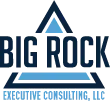COACH'S BLOGS

What Can Executive Coaching Do for My Small Business?
Discover how executive coaching can significantly impact the growth and success of your small business. Unveil the transformative benefits waiting for you.

Executive coaching is a specialized form of professional guidance designed to enhance the leadership abilities of business owners or executives. It involves a one-on-one partnership between a trained coach and the individual being coached. This tailored approach focuses on improving managerial skills, decision-making processes, and overall performance within the business environment.
Through insightful conversations and skill-building activities, executive coaches help small business owners identify their strengths and weaknesses. By exploring these aspects, individuals can leverage their strengths to overcome challenges and reach their full potential. Executive coaching provides a platform for personal and professional growth, leading to enhanced leadership capabilities and strategic thinking.
The primary goal of executive coaching for small businesses is to drive individual and organizational growth. By fostering a supportive yet challenging environment, coaches empower business owners to set clear objectives, establish effective communication strategies, and cultivate a positive company culture. This personalized guidance enables small business leaders to navigate complexities, make informed decisions, and drive innovation within their organizations.
In essence, executive coaching serves as a catalyst for change and improvement in small businesses. By gaining valuable insights, honing leadership skills, and implementing strategic action plans, business owners can elevate their performance and achieve sustainable success. This process of continuous learning and development propels small businesses towards greater efficiency, profitability, and long-term viability.
Benefits of Executive Coaching
Executive coaching offers a multitude of benefits for small businesses, ranging from enhanced decision-making to improved employee engagement. One of the key advantages is the personalized support and guidance provided to business owners, helping them overcome challenges and optimize their performance.
Furthermore, executive coaching promotes self-awareness and emotional intelligence among leaders, enabling them to navigate interpersonal dynamics and conflicts effectively. By fostering a culture of continuous learning and feedback, small businesses can create resilient and adaptive leadership teams that drive innovation and growth.
Moreover, executive coaching contributes to increased employee morale and retention rates within small businesses. When leaders receive coaching, they are better equipped to inspire and motivate their teams, leading to a more engaged workforce and higher productivity levels. This positive ripple effect elevates the overall performance and success of the organization.
Additionally, executive coaching aids in succession planning and talent development within small businesses. By identifying and nurturing future leaders, organizations can build a robust leadership pipeline that ensures continuity and long-term success. This strategic approach to talent management strengthens the foundation of small businesses and enables them to thrive in dynamic market environments.
Ultimately, the benefits of executive coaching extend beyond individual growth to organizational transformation. Small businesses that invest in coaching cultivate a culture of excellence, resilience, and innovation. By prioritizing leadership development and skill enhancement, companies can adapt to change, seize opportunities, and achieve sustainable growth in competitive markets.
Finding the Right Executive Coach
Choosing the right executive coach is crucial for maximizing the impact of coaching on your small business. Begin by assessing your specific needs and goals, as different coaches may specialize in various areas such as leadership development, team performance, or organizational change.
It is essential to consider the coach's qualifications, experience, and coaching style to ensure a good fit with your business culture and objectives. Look for certifications from reputable coaching organizations, testimonials from previous clients, and a proven track record of delivering results.
When selecting an executive coach, prioritize transparency, trust, and open communication. Establish clear expectations, objectives, and timelines for the coaching engagement to align with your business goals. Effective collaboration and mutual respect between the coach and the client are essential for a successful coaching relationship.
Remember that finding the right executive coach is not only about credentials but also about the personal connection and resonance you feel with the coach. Trust your instincts and choose a coach who not only has the expertise and experience but also demonstrates a genuine commitment to your growth and success.
By partnering with the right executive coach, small business owners can unlock their full potential, accelerate their professional development, and achieve remarkable results. Investing in a trusted coaching relationship can pave the way for transformative change, strategic leadership, and sustainable business growth.
Measuring the Impact of Executive Coaching
Measuring the impact of executive coaching on small businesses involves assessing both quantitative and qualitative outcomes. Quantitative metrics may include improvements in productivity, revenue growth, cost savings, and employee retention rates that result from coaching interventions.
Qualitatively, the impact of executive coaching can be observed through enhanced leadership capabilities, improved decision-making, and increased employee satisfaction and engagement. These intangible benefits contribute to a positive organizational culture and a heightened level of performance across all levels of the business.
Small businesses can also evaluate the impact of coaching through feedback mechanisms such as performance reviews, 360-degree assessments, and employee surveys. By gathering input from stakeholders at various levels, organizations can gauge the effectiveness of coaching initiatives and make data-driven decisions to support continued growth and development.
Furthermore, tracking key performance indicators (KPIs) before, during, and after the coaching engagement can provide valuable insights into the tangible outcomes of coaching. By analyzing metrics related to leadership effectiveness, team dynamics, and business results, small businesses can measure the return on investment (ROI) of executive coaching and make informed decisions about future coaching endeavors.
In summary, measuring the impact of executive coaching is essential for assessing its value and effectiveness in driving organizational success. Small businesses that monitor and evaluate the outcomes of coaching initiatives can refine their strategies, optimize performance, and foster a culture of continuous improvement that propels them toward sustainable growth and prosperity.
Take Your First Step In Maximizing Your Small Business Potential
Unleash the full potential of your small business with the power of executive coaching. Take the first step towards unlocking exceptional growth and success. Elevate your leadership skills, build effective strategies, and achieve sustainable results. Experience transformation and maximize your business potential today.

